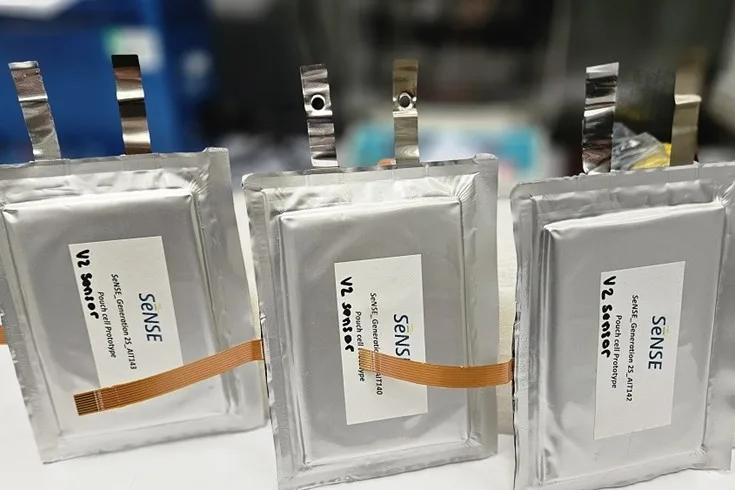The European Union-backed SeNSE project, led by a consortium of research institutions and industry partners, has made “significant improvements” in lithium-ion battery technology for electric vehicles, according to Empa, the Swiss federal laboratories for materials science and technology.
Launched in 2020 and concluded in early 2024, the four-year initiative aimed to enhance battery performance across the value chain, from material development to cell production. The resulting prototype lithium-ion cells are said to be more sustainable, safer, and higher in energy density, though researchers acknowledge stability challenges remain.
See also: Shenhuo New Materials Begins Mass Production of China’s Thinnest Battery Foil
The Austrian Institute of Technology (AIT) manufactured the pouch cells, which were integrated into a functional module by FPT Motorenforschung AG, part of the Iveco Group. “We have scaled up all new developments from laboratory to pilot scale,” said Corsin Battaglia, head of laboratory at Empa. However, he noted that scaling up further to gigafactory-level production, such as at project partner Northvolt, would require a substantial increase in manufacturing capacity.
The SeNSE module incorporates several advancements over conventional batteries, including a reduced cobalt content in the cathode and partial replacement of graphite with silicon in the anode. These improvements reportedly enable a higher energy density, faster charging capabilities, enhanced fire safety, and a lower environmental footprint, all while maintaining cost efficiency.
See also: China’s LFP Battery Sector Sees Demand Recovery Amid Rising Orders, Price Adjustments
Despite these advancements, the project team admits the prototype cells have yet to achieve the desired stability. “We are also researching battery technologies that are potentially worlds better than lithium-ion batteries—more sustainable, safer, and with a higher energy density,” Battaglia added, though he cautioned that industrial-scale production remains years away.
Academic collaborators in SeNSE included the University of Münster, the Helmholtz Institute Münster, Coventry University, AIT, and Germany’s Center for Solar Energy and Hydrogen Research Baden-Württemberg (ZSW). Industrial partners such as Northvolt, FPT Motorenforschung AG, French startups Solvionic and Enwires, and chemical company Huntsman also contributed to the project.
See also: China’s CALB Breaks Ground on €2 Billion Battery Plant in Portugal
SeNSE was one of four major EU battery research initiatives. Its coordinators have since launched a follow-up project under Horizon Europe, called IntelLiGent, which focuses on developing cobalt-free high-voltage cells for electric vehicles.
